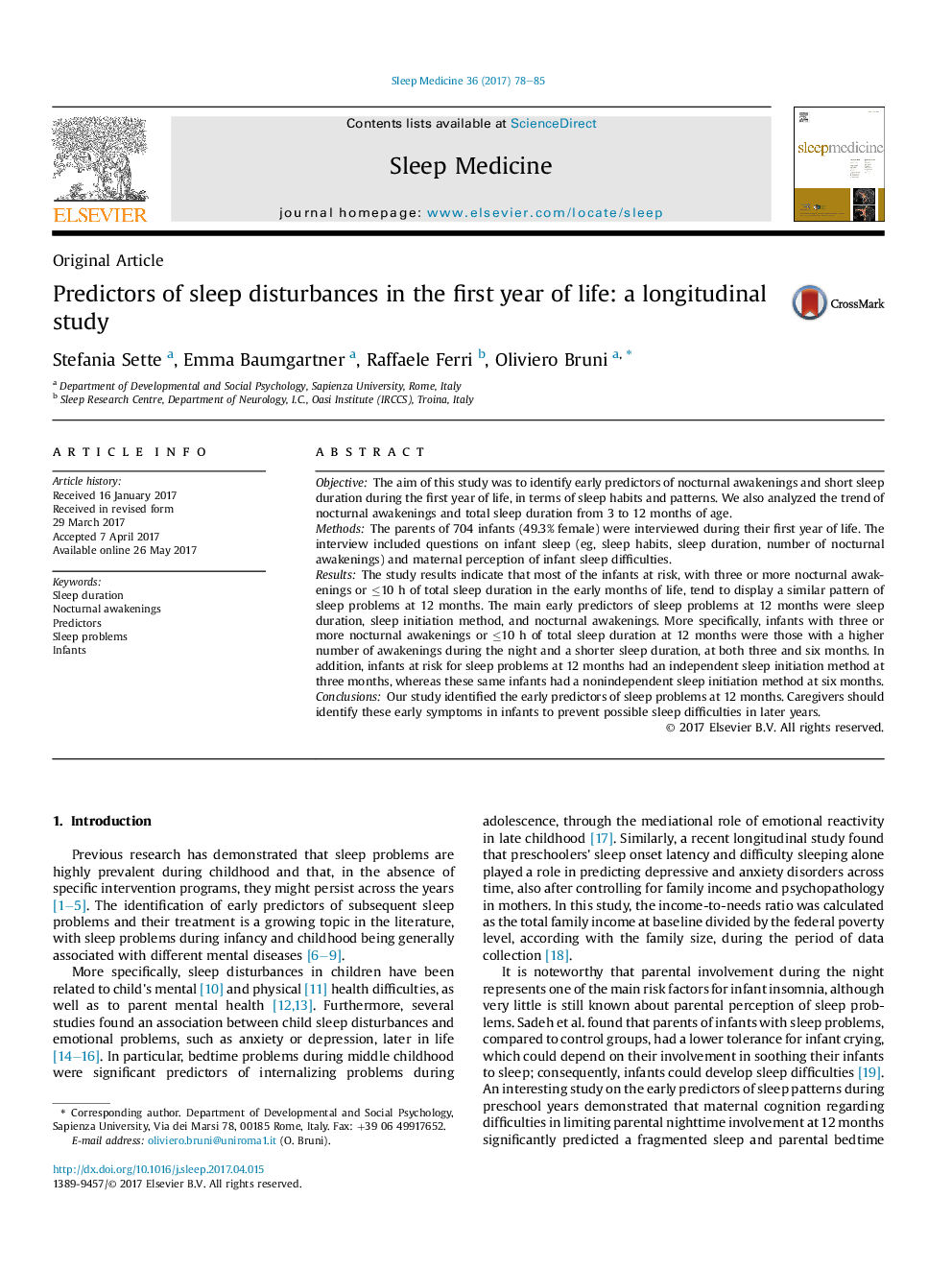| کد مقاله | کد نشریه | سال انتشار | مقاله انگلیسی | نسخه تمام متن |
|---|---|---|---|---|
| 5643570 | 1586473 | 2017 | 8 صفحه PDF | دانلود رایگان |
- The nocturnal awakenings in infants at three and six months of age are a risk factor for sleep problems at 12 months of age.
- Shorter sleep duration at three and six months of age is also a risk factor for sleep problems at 12 months.
- Early autonomy in falling asleep at three months of age is another risk factor for sleep problems at 12 months.
ObjectiveThe aim of this study was to identify early predictors of nocturnal awakenings and short sleep duration during the first year of life, in terms of sleep habits and patterns. We also analyzed the trend of nocturnal awakenings and total sleep duration from 3 to 12 months of age.MethodsThe parents of 704 infants (49.3% female) were interviewed during their first year of life. The interview included questions on infant sleep (eg, sleep habits, sleep duration, number of nocturnal awakenings) and maternal perception of infant sleep difficulties.ResultsThe study results indicate that most of the infants at risk, with three or more nocturnal awakenings or â¤10 h of total sleep duration in the early months of life, tend to display a similar pattern of sleep problems at 12 months. The main early predictors of sleep problems at 12 months were sleep duration, sleep initiation method, and nocturnal awakenings. More specifically, infants with three or more nocturnal awakenings or â¤10 h of total sleep duration at 12 months were those with a higher number of awakenings during the night and a shorter sleep duration, at both three and six months. In addition, infants at risk for sleep problems at 12 months had an independent sleep initiation method at three months, whereas these same infants had a nonindependent sleep initiation method at six months.ConclusionsOur study identified the early predictors of sleep problems at 12 months. Caregivers should identify these early symptoms in infants to prevent possible sleep difficulties in later years.
Journal: Sleep Medicine - Volume 36, August 2017, Pages 78-85
